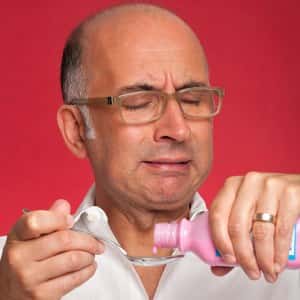
Have you experienced peculiar symptoms from taking certain medications or even eating certain foods? Eating beets, for example, may turn urine and stools red. Drinking a lot of carrot juice can color the skin orange. What might account for black stools? Readers have asked about dietary supplements as well as medications.
Do Supplements or Medications Cause Black Stools?
Q. I take vitamin B12, zinc, iron and CoQ10, along with metoprolol and simvastatin every day. I also eat stewed prunes daily. Would any of these be making my stool dark? I’d hate to think it’s cancer.
A. Any change in bowel habits deserves a consultation with your doctor, so please make an appointment. That said, iron can lead to dark or black stools, so don’t panic before you see the physician. The healthcare provider you consult should consider all possible causes for your dark stool.
Side Effect of Pepto-Bismol:
One medication notorious for turning stool black is Pepto-Bismol.
Q. I’ve been taking Pepto-Bismol for four days. I have black stools now. Is this a common side effect?
A. Pepto-Bismol (bismuth subsalicylate) often causes black stools. This side effect of your medicine is not dangerous. It is the result of bismuth in the product combining with sulfur in the digestive tract to create bismuth sulfide, a black or dark compound. Once you stop taking the medicine, your stool should return to normal within several days.
When Is Black Stool a Problem?
If you were not taking Pepto-Bismol or another bismuth-containing medication, we would insist you should get medical attention immediately. Black tarry stools could indicate intestinal bleeding and must be checked out. Symptoms such as nausea, vomiting, abdominal pain or weakness also suggest a medical condition that needs prompt medical attention. In such a case, the stool may also smell especially objectionable.
Watch Out for Anticoagulants!
People who take anticoagulants such as warfarin (Coumadin) or dabigatran (Pradaxa) should be especially alert for black stools, as this could signal a serious problem with intestinal bleeding. Other anticoagulants that might make a person more vulnerable to internal bleeding include apixaban (Eliquis) and rivaroxaban (Xarelto).
NSAIDs may also contribute to the danger of gastrointestinal bleeding, as they tend to irritate the lining of the digestive tract and can cause ulcers. Black feces from a person taking an NSAID pain reliever, even an OTC drug like ibuprofen, warrant quick action.

